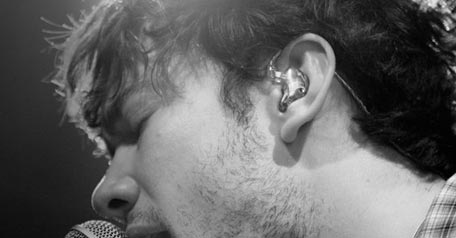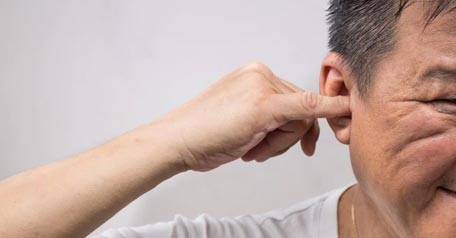From first detecting Tinnitus to eventually learning how to cope with it.
It was sometime in the spring of 2009 when I noticed a ringing in my left ear. Alarmed, I covered my ears to see if it was all in my head or if some sort of distant siren was going off. The high-pitched noise, it turns out, was in my mind, and I realized I heard it in my right ear, too.
My story is not uncommon; according to the American Tinnitus Association, up to 50 million people suffer from tinnitus, or, a constant ringing in the ears, in the United States alone. Many more suffer worldwide. The causes are varied and include exposure to loud noise, hearing loss, and stress. As of now, there is no cure.
After letting the facts settle in and coping with the stress and sleepless nights that followed, I began to adjust to the situation, and realized that I should do whatever I could to ensure that no further damage would be done to my ears.

I knew why my problem had started. I started playing guitar when I was 16 and I never used any sort of ear protection, despite being surrounded by loud amplifiers and drums. I also have a disposition toward anxiety – the combination of hearing damage and stress seemed to trigger my tinnitus.
My problem, therefore, was two-fold, and needed a response that protected against both the hearing damage that inevitably occurs when playing in a band without ear protection, and a reduction in my level of stress.
Earplugs for Musicians
My situation was exasperated further by the fact that I sing in my band, so wearing traditional earplugs can be problematic, as I am no longer able to hear what I am singing, especially in a loud bar or club. Fortunately, traditional earplugs are not the only types that exist, and there are many brands that produce earplugs for musicians – these plugs, instead of muffling all sound, only cut out certain frequencies, far out of the normal range that a musician needs to hear to perform.
After a few practices, I felt comfortable enough with my earplugs to sing live, and felt much better about performing, knowing that I would not be making the ringing in my ears worse every time I plugged in my guitar or stood next to my drummer.
Reducing My Stress to Control My Tinnitus
This was more difficult, but I have seen progress through increased exercise, a reduction in caffeine, and occasional meditation. None of this is groundbreaking – these are some of the most important things for anyone who wants to decrease their level of stress, and people have known that for a long time. The problem is actually putting it into practice. I made a checklist of things that I must do every single week. For some reason, if I have a list staring at me I have to complete it. That worked for me, and other methods might work for others – but the point is to find whatever works and stick to it.
No Reduction in Tinnitus, But a Reduction in How Much I Minded

Just knowing I was doing my best to adapt to the ringing in my ears made me feel better about my situation, and as my level of stress began to decrease, the amount of attention I paid to the high-pitched screeching in my ears declined. Although it is there if I think about it, I don’t think about it as often, and when I do, I’m glad I caught it early enough to make sure it doesn’t get worse. I just see it as a reminder that I need to be more careful and live a healthier lifestyle. Maybe I needed that constant siren in my head telling me how not to live.
- Growing IT Sector in Prague: What Businesses Need to Know? - November 18, 2024
- How to Choose the Perfect Luxury Hotel in Prague for Your Stay? - November 18, 2024
- Why Skincare Product Ingredients Matter for Lasting Results? - November 3, 2024

